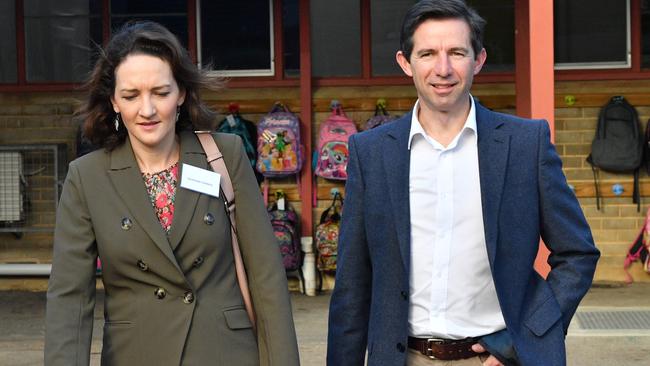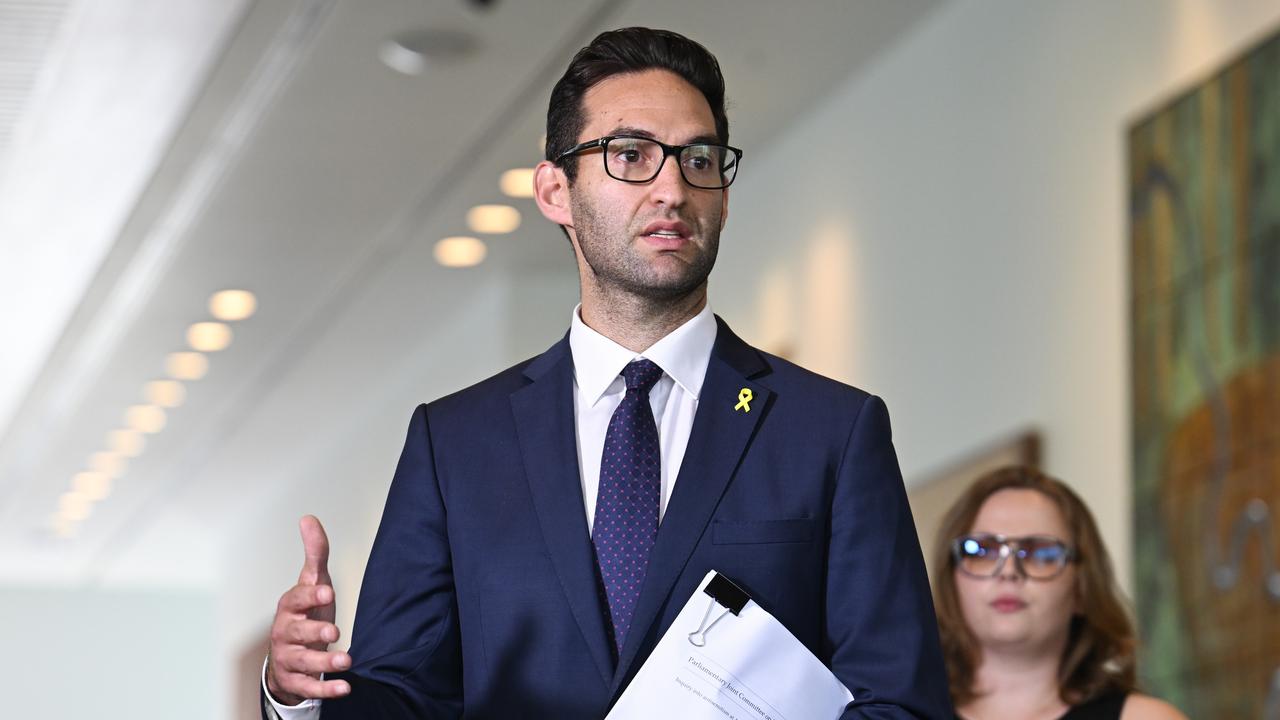Simon Birmingham faces hard sell over reforms to schools funding
The Education Minister faces an uphill battle selling the merits of a proposed solution to non-government school funding anomalies.

Education Minister Simon Birmingham faces an uphill battle selling a proposed solution to anomalies in non-government-school funding, with the powerful independent schools lobby calling for changes to be delayed.
As Coalition politicians nervously await Senator Birmingham’s response to the report of the National School Resourcing Board, the independent sector is understood to be furious the government is being asked to consider linking parents’ tax returns with children’s school enrolments and funding.
As revealed by The Australian last month, the Catholic sector is expected to reap about $1 billion more over the next four years under the proposed changes.
However, it also has warned of potential pitfalls.
Businessman Michael Chaney, who chairs the resourcing board, this week briefed education stakeholders on the findings of his review into the use of socio-economic status scores to determine the capacity of parents of non-government-school students to contribute to the costs of their children’s education — and therefore into school funding.
The system has long been considered inequitable, favouring wealthy independent schools over lower-fee Catholic schools because SES scores are based on where families live rather than their wealth or income.
Speculation that the review was considering using family tax data to create a means test for school funding was flagged in The Australian last month, causing the independent sector in Victoria to lobby federal MPs about “growing alarm” in school communities.
The Chaney report is understood to accept the inadequacies of the current system.
However, it is understood it also warns that a shift to accessing parents’ earnings data raises privacy concerns as well as complications in cases where families have complex financial circumstances or where students have a parent based overseas.
The Independent Schools Council of Australia yesterday urged the government to be cautious, warning that it would oppose any changes to funding that threatened school choice.
“It is important to remember that any alternative methodology would require significant work to determine whether it would produce accurate and valid information at the individual school level,” the council warned yesterday.
“The current funding methodology took three years to model, trial and validate prior to its introduction and the independent sector would accept nothing less than the same rigorous process prior to any move away from the current arrangements.”
The Catholic Education Commission of Victoria, which has been campaigning heavily for changes, declined to comment yesterday.
However, Catholic Secondary Principals Australia president Andrew Watson said the mooted switch would overcome some of the current issues but would be a simplistic solution unless it were linked to broader reform.
“It needs to be part of an overall review of funding and how we determine the capacity to pay so that it leads to an equitable distribution of government money to all schools,” he said.
The CECV’s submission to the review recommended that not only parents be means-tested, but also schools, to account for the fact that many wealthier schools were able to raise funds privately.


